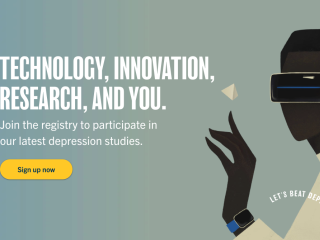A critical asset to Depression Grand Challenge research recruitment, the UCLA Depression Research Registry streamlines the recruitment process by pre-populating a pool of willing, eligible research subjects — people who have already declared their interest in clinical research and specific topics in advance — enabling scientists to identify and enroll participants for their specific studies more quickly. The registry was launched in late 2021 and is a collaboration between the UCLA Depression Grand Challenge and the UCLA Center for SMART Health.
Participants need only submit basic demographic details about themselves and indicate which study topics they’re interested in. Enrollment is open to anyone, and registrants do not need to have a history of specific symptoms or to have been diagnosed with depression or any other condition.
The Registry's importance
Depression has been long misunderstood, misdiagnosed, under-researched and stigmatized. Today, with universal acceptance of its impact, research and understanding are far behind the growing need for effective treatments for all who are diagnosed. We need large samples of participants who represent our population to identify patterns for a condition as complex and far-reaching as depression. The registry helps researchers more easily meet their size and representation recruitment targets, which is important for ensuring that the research results will apply to the entire population.
To facilitate recruitment of participants for depression-related research studies, allowing even large-scale Depression Grand Challenge research projects to spin up faster than before.
Indefinite
Unlimited capacity. Approx. 33,600 registrants as of March 2025.

UCLA Center for SMART Health
Initial donation from DGC supporter. Ongoing operation supported with gifts and specific research project funding.


